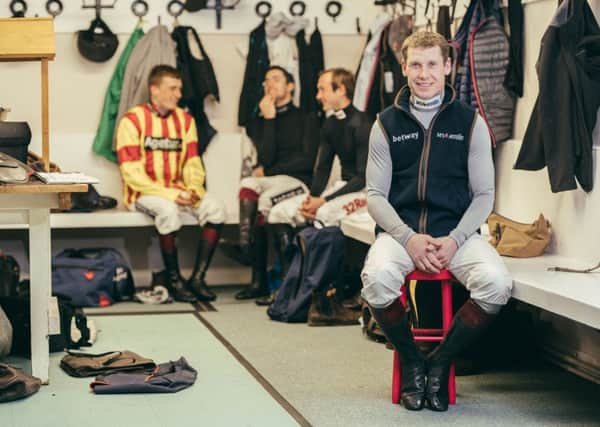Jockeys get on board for mental health campaign


Not one of his fellow riders has a bad word to say about the man who is the latest high-profile sportsman to front Time to Change’s newly-launched In Your Corner campaign that is raising awareness about mental health.
With one in four people fighting a mental health problem in any given year, Johnson – together with his weighing room colleague Aidan Coleman – is calling on men to step in if their mate is acting differently as part of Time to Change’s initiative, which also encompasses cricket, rugby league, boxing, football and golf.
Advertisement
Hide AdAdvertisement
Hide AdEven though both have spoken about the pleasure they derive from race-riding – only Sir AP McCoy has ridden more winners over obstacles than Johnson – the physical demands and self-sacrifice are not always fully appreciated. The physical scars are often accompanied by hidden personal torment that can run deep.
However, a jockey’s lifestyle – restricted diet, self-employment with no guaranteed income, risk of injury and long hours – is allied to factors, such as injuries, over-training, stress and performance failure, that can lead to depression among sportspeople.
“I’m supporting Time to Change’s In Your Corner campaign because I know how important it is to be there for each other when things get tough,” said Johnson, 39, who has previously revealed how his two-decade rivalry with the aforementioned McCoy was underpinned by mutual respect and friendship.
“Especially in our job you get patches when things just aren’t clicking. You can get down and it can be frustrating. We notice if someone isn’t as chatty and often use car journeys to pick each other up.
Advertisement
Hide AdAdvertisement
Hide Ad“We’re all self-employed, but in a weird way we’re one big team and we do look out for each other.
“It’s often little things you notice which make you realise someone’s not at their strongest.
“We all know that we’re 30 minutes away from another fall so we never get too big for our boots and we’re good at being there for each other. We might have a quiet word and say, ‘I was feeling like that last week, I know how you’re feeling’ and that can really help. Ups and downs are part of our job.”
By way of example, North Yorkshire jockey Henry Brooke, left with life-threatening injuries following a fall at Hexham in October, credits the phone calls and text messages from Johnson for inspiring his recovery.
Advertisement
Hide AdAdvertisement
Hide AdIt is a special camaraderie highlighted by Coleman, who struggled in the past to handle racing’s knockbacks. Yet, while Grade One success remains elusive, his outlook is far more mature as he forges a burgeoning alliance with top trainer Jonjo O’Neill and leading owner JP McManus while also mentoring younger riders.
“We all need to do our bit to change how people think about mental health. It’s not about grand gestures, it’s just about being there,” said the 28-year-old.
“There’s always going to be tough times for jockeys. It’s the nature of the game. Even if you’re doing well, 15 per cent of your rides may be winners so that means 85 per cent are losers.
“It’s a tough, tiring sport, but we love it and it is a rollercoaster of emotions we go through.
Advertisement
Hide AdAdvertisement
Hide Ad“On the track we’re very, very competitive, but we’re fair and in the weighing room there’s a great camaraderie and if you have a fall, there’s always someone there looking out for you.
“In times gone past, men always were seen as having to be strong and macho and we didn’t talk about feelings, but as time goes on we’re shaking off that persona and are being much more open, but we’re not there yet and I hope that sportsmen supporting this campaign will help.
“As sportspeople we have to be mentally tough, but we’re all human and everyone is vulnerable to mental health problems.”
Time to Change’s In Your Corner campaign encourages sports competitors to do three things: ask friends how they are face to face, by text or by phone; listen, without judging; be yourself and talk about normal, everyday things.
Further details can be found at www.time-to-change.org.uk/inyourcorner.